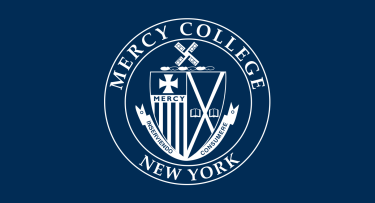Learn How Mercy College Boosts Student Retention Rates

In February, Mercy College was invited to be a featured presenter at a webinar hosted by the Yes We Must Coalition, which aims to encourage more students from low-income backgrounds to stay in school and attain their degrees.
Representing the College were Provost José Herrera, Associate Dean of the School of Business Victor Petenkemani, and Vice President of Student Affairs Kevin Joyce. Each presented his perspective regarding the strategies Mercy has employed that have led to comparatively high levels of retention among African-American men enrolled in a college or university.
The Yes We Must Coalition comprises 19 independent, not-for-profit colleges and universities where undergraduate enrollment of Pell-eligible students is above 50 percent. The February 15 webinar was the first in a series hosted by the Coalition to showcase the strategies and practices of member institutions showing strong outcomes in student persistence and retention.
During the webinar, Joyce presented details about Mercy’s Maverick Success Toolkit, a series of initiatives that began with the PACT program that launched in 2009 to serve Mercy’s diverse student population, many of whom are first-generation college students. “More recently, we have launched macro-level initiatives focused on teaching excellence, course redesign and career landing paths, among others, complementing the highly effective work of our faculty in the classroom,” he said. “Mercy’s commitment to our students begins when they enter the College and continues far beyond their time here.”
“We’d like the community to view Mercy’s leadership role in the Coalition as a strategic business imperative,” said Petenkemani, who also teaches in the School of Business. “We are always striving to discover and develop new ways to better prepare our students for their lives after graduation. Being recognized by the Coalition reassures us that we are on the right path, even though much work remains to be done.”
“Mercy is proud to be a part of this consortium of institutions committed to serving students from low-income backgrounds,” said Herrera. “While our three-plus years’ participation in the Yes We Must Coalition is helping to close the achievement gap across our diverse student populations, we recognize that we must continuously strive to improve.”
